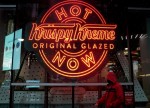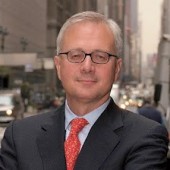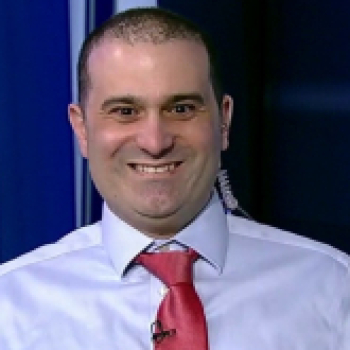
- All Instrument Types
- Indices
- Equities
- ETFs
- Funds
- Commodities
- Currencies
- Crypto
- Bonds
- Certificates
Please try another search

Fed Watch: Policymakers Wake Up To Inflation Threat, But Is It Too Late?

Federal Reserve policymakers seem to have discovered religion, at least when it comes to inflation, after dragging their feet for months claiming it was transitory. But it may be too late.
Fed Chairman Jerome Powell called inflation a “severe threat” to economic recovery as he was peppered with questions during his confirmation hearing for a second term Tuesday. After long claiming the Fed had to maintain monetary accommodation to support the recovery, he now says the economy no longer needs emergency support.
Fed Governor Lael Brainard, who appeared before the Senate Banking Committee on Thursday for her confirmation as vice chair, said
“We do have a powerful tool” to curb inflation—namely, higher interest rates. After opposing any move to tighten monetary policy for years, Brainard told the committee that fighting inflation is the Fed’s “most important task.”
Powell May Have Missed The Boat
Powell, too, has maintained that the Fed knows how to contain inflation and will use its tools to do so when necessary.
But skepticism is growing that raising interest rates to quell demand will be ineffective at this point in fixing inflation caused by insufficient supply of labor and other resources. The damage is already done on the demand front through inflating the money supply and flooding consumers with aid in pandemic programs.
Powell is still not on board with reducing the high level of monetary accommodation, telling senators that he thinks the Fed can keep its inflated balance sheet intact and not start running off its bond holdings until “later” in the year. Even if the Fed stops adding to its holdings with new bond purchases, it will continue to reinvest maturing bonds in the nearly $9 trillion portfolio.
Richard Shelby, a Republican senator from Alabama who chaired the banking committee for years, said the Fed had “missed the boat” and needed to step in with measures against inflation much sooner. He added that the Fed, in his view, “has lost a lot of credibility” from Powell’s delay.
A veritable chorus of speeches and interviews echoed Powell and Brainard as other members of the Federal Open Market Committee chimed in on their readiness to tighten monetary policy this year to provide a so-called “soft landing” for the economy—taming inflation without a recession.
The hawkish St. Louis Fed chief James Bullard, for instance, said in an interview that he thinks the FOMC will have to move aggressively to fight inflation, raising rates four times this year, starting in March.
Another hawk, Kansas City Fed President Esther George, says the central bank should move much more quickly to run off its bond holdings, and begin even as it is raising interest rates.
But economists around the world are saying that everything from Chinese lockdowns to green energy policies will exacerbate the supply-chain crisis, while labor shortages will fuel inflation for many months.
The former head of the New York Fed, William Dudley, said last week that the Fed under Powell has made four crucial mistakes—shifting policy to allow overshooting of the 2% inflation target until the economy was already overheating, misjudging the strength of the labor market, considering inflation to be transitory, and holding off from reducing bond purchases for fear of another taper tantrum.
“I think the problem right now is that the markets aren’t taking them seriously enough,” Dudley said in an op-ed for Bloomberg.
Fed Board Nominees Chime In
President Joe Biden’s slate of nominees for the Fed board of governors isn’t likely to encourage market participants to think that the central bank is laser-focused on inflation.
Sarah Bloom Raskin, the nominee for vice chair for regulation, has made no secret of the fact that she thinks the Fed should be pressuring banks to allocate capital in line with reducing carbon emissions.
Pennsylvania Republican Senator Pat Toomey has been outspoken in opposing central bank intervention on climate, saying that is not part of the Fed’s mandate, and last week said he has “serious concerns” about Raskin’s nomination for that reason.
The two other nominees to the board, academics Lisa Cook and Philip Jefferson, while bringing an overdue minority perspective on Fed deliberations, have been involved in the Minneapolis Fed’s diversity institute. Toomey again has opposed the regional bank’s emphasis on diversity as being beyond the scope of the Fed’s mandate.
Toomey and Shelby are not likely to derail the effort to evolve Fed policy but their misgivings may be shared by investors who would prefer for the Fed to keep its eye on the ball.
Related Articles

Recent headlines appear to have shaken investor sentiment. It’s premature to read too much into a few days of weaker-than-expected survey numbers. More importantly, the latest...

The stock market sold off on a decline in February's Consumer Confidence Index (CCI), confirming a similar decline in February's Consumer Sentiment Index (CSI), which was reported...

The EU’s most costly budgets, bitcoin’s market swings, and rising US bankruptcies. Each week, the Syz investment team takes you through the last seven days in seven charts. 1. The...
Are you sure you want to block %USER_NAME%?
By doing so, you and %USER_NAME% will not be able to see any of each other's Investing.com's posts.
%USER_NAME% was successfully added to your Block List
Since you’ve just unblocked this person, you must wait 48 hours before renewing the block.
I feel that this comment is:
Thank You!
Your report has been sent to our moderators for review





Add a Comment
We encourage you to use comments to engage with users, share your perspective and ask questions of authors and each other. However, in order to maintain the high level of discourse we’ve all come to value and expect, please keep the following criteria in mind:
Perpetrators of spam or abuse will be deleted from the site and prohibited from future registration at Investing.com’s discretion.